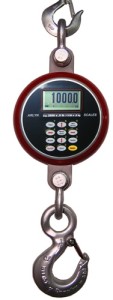 Did you know that commercial freezers are used for a variety of industrial applications? For example, meat freezers store products at different levels of processing. Some handle steaks meant for luxury restaurants. Meanwhile, others have jerky dried and flattened for long-term storage.. From the slaughterhouse, all the way through wholesale processing, packaging, and retail distribution.
Did you know that commercial freezers are used for a variety of industrial applications? For example, meat freezers store products at different levels of processing. Some handle steaks meant for luxury restaurants. Meanwhile, others have jerky dried and flattened for long-term storage.. From the slaughterhouse, all the way through wholesale processing, packaging, and retail distribution.
There are similar requirements for fish processing. Sometimes there are fish freezers on fleets of boats to keep the daily catch fresh. Additionally, there are many other food-related freezer applications,. These include frozen packaged meals, vegetables and fruit, bakery products, juices, and ice cream.
A number of other non-food related commercial freezer requirements exist as well. The medical field requires standard refrigeration, regular commercial freezing, and cryogenic storage. Standard industrial requirements use freezers for storing chemical ingredients, adhesives, enzymes, colorants, dyes, and many other items.
What Does Weight Have To Do With It?
In many of the situations listed above, items must be weighed. Generally, anything that is packaged requires accurate weighing. Most food processing is determined by the weights of objects. Other types of industrial handling will also need to know the weight of items being processed.
Batch processes deal with a number of different ingredients. These ingredients might be mixed together in very accurate ratios and weight is often used for this part of the process.
There are a variety of scales that are suitable for standard environments. These include floor, platform, drum, bench, and precision scales. Each type is designed to handle certain containers, vehicles or live beings. These scales are made from a variety of materials, like aluminum and plastic, and are not usually sealed.
While appropriate for most industrial locations, standard industrial scales are not suitable for weighing items inside of commercial freezers. For applications like this, regulations require stainless steel platform surfaces on the scales. This allows the scales to be cleaned thoroughly after use.
Additionally, stainless steel scales avoid corrosion. They can handle extreme environments including temperatures below freezing. We recommend purchasing scales that are fully constructed from stainless steel, including the load sensors.
Load Cells
Load cells are typically made from aluminum or plated steel. At Arlyn Scales, we prefer to use stainless steel. It lasts longer and has more advantages in the long run.
Long-term exposure to condensation can cause an oxide film to form underneath the electronic sensors on the load cell. For this reason, stainless steel load cells are a better choice. They have a high temperature threshold and will not rust when exposed to water. There is an added advantage to using stainless steel, because this material is more resistant to shock load and overload abuse.
High quality industrial scales, such as the Arlyn brand, use stainless steel load sensors on the entire product line. The scale’s digital indicator has additional requirements for very low temperature use.
The Scale Indicator
Many electronic scales use a Liquid Crystal Display (LCD). A low temperature LCD should be specified for this type of application. This will avoid a loss of contrast, or in more extreme situations, a complete loss of visibility of the display.
Furthermore, the housing for the indicator should be sealed to prevent moisture from reaching the electronics inside the indicator. Water droplets can cause clogs or rusting. Again, high quality industrial scales, such as those from Arlyn Scales, provide a sealed, gasketed housing for the electronic display. All digital scales will be affected by changes in temperature.
The load cells are the components that are the most sensitive. Generally, the scale manufacturer will compensate the load cell for these temperature changes. They do this by incorporating one or more temperature sensitive resistors onto the load cell.
These resistors are designed to react to temperature in the opposite direction at the same amount as the load cells react to temperature. This should cause the temperature effect to be balanced out. This balance can never be fully achieved, so there are still some temperature effects.
Analog To Digital Converter
The electronic system that changes the signals from the load cells into a digital number is known as the analog to digital converter. This system will also be affected by changes in temperature. More advanced scales incorporate a device known as a Delta sigma analog to digital converter. This type of converter almost completely eliminates the temperature effects from this system.
Find Industrial Processing Scales From Arlyn Scales
Arlyn Scales is a factory direct scale manufacturer that can work with you. Integrate our scales and weighing devices into your existing systems. Choose from our industrial bench, platform, cylinder and floor scales or ask us about Ultra Precision weighing technology. It’s the first new weighing technology to be released in the last 40 years.
Such technology rivals the accuracy of force motor scales at about a third of the cost. Contact us today to discuss your needs and find a weighing solution. We also offer specialty scales and solutions including a line of explosion proof scales. This series has been tested and are equipped with intrinsically safe components. They are for use in an impressive range of classified hazardous locations.



